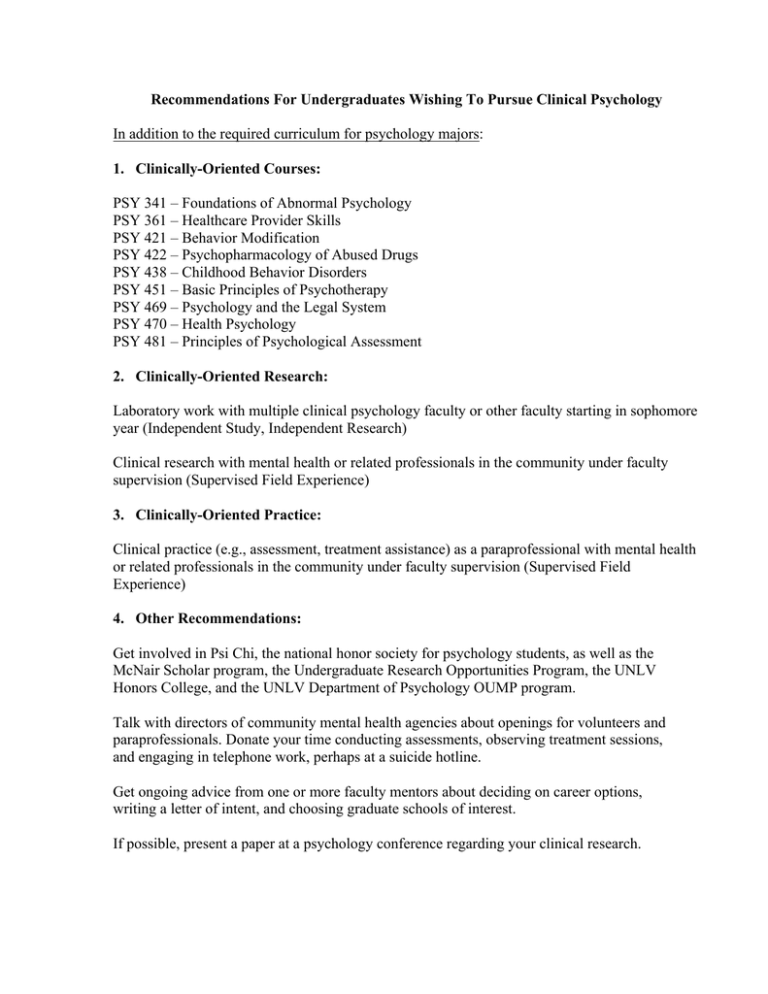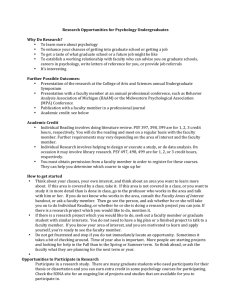Recommendations For Undergraduates Wishing To Pursue Clinical
advertisement

Recommendations For Undergraduates Wishing To Pursue Clinical Psychology In addition to the required curriculum for psychology majors: 1. Clinically-Oriented Courses: PSY 341 – Foundations of Abnormal Psychology PSY 361 – Healthcare Provider Skills PSY 421 – Behavior Modification PSY 422 – Psychopharmacology of Abused Drugs PSY 438 – Childhood Behavior Disorders PSY 451 – Basic Principles of Psychotherapy PSY 469 – Psychology and the Legal System PSY 470 – Health Psychology PSY 481 – Principles of Psychological Assessment 2. Clinically-Oriented Research: Laboratory work with multiple clinical psychology faculty or other faculty starting in sophomore year (Independent Study, Independent Research) Clinical research with mental health or related professionals in the community under faculty supervision (Supervised Field Experience) 3. Clinically-Oriented Practice: Clinical practice (e.g., assessment, treatment assistance) as a paraprofessional with mental health or related professionals in the community under faculty supervision (Supervised Field Experience) 4. Other Recommendations: Get involved in Psi Chi, the national honor society for psychology students, as well as the McNair Scholar program, the Undergraduate Research Opportunities Program, the UNLV Honors College, and the UNLV Department of Psychology OUMP program. Talk with directors of community mental health agencies about openings for volunteers and paraprofessionals. Donate your time conducting assessments, observing treatment sessions, and engaging in telephone work, perhaps at a suicide hotline. Get ongoing advice from one or more faculty mentors about deciding on career options, writing a letter of intent, and choosing graduate schools of interest. If possible, present a paper at a psychology conference regarding your clinical research. Find out which graduate schools might best fit your interests, and tailor your application toward a specific faculty member or two who would best match your interests. Review information provided for students by the American Psychological Association (Washington, D.C.) such as the book Graduate Study in Psychology and the “Careers in Psychology” brochure (www.apa.org/topics/psychologycareer.html#aparesources). Read the books What Can You Do with a Major in Psychology: Real People, Real Jobs, Real Rewards (New York: Wiley) by Shelley O’Hara, and Insider’s Guide to Graduate Programs in Clinical and Counseling Psychology by Tracy Mayne, John Norcross, and Michael Sayette (New York: Guilford). Ask questions and get as much information as possible!

